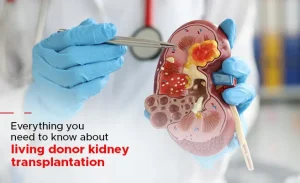
What are kidney stones? How do they form?
Kidney stones are hard deposit made of minerals and salts that form inside your kidneys, Diet excess body weight, some medical conditions, and certain supplements and medications are among the many causes of kidney stones.
They can exist in any part of urinary tract from kidney to bladder
What Symptoms do the kidney Stones Cause ?
A kidney stone usually will not cause symptoms until it moves around within your kidney or passes into your ureters – the tubes connecting the kidneys and the bladder. If it becomes lodged in the ureters, it may block the flow of urine and cause the kidney to swell and the ureter to spasm, which can be very painful. At that point, you may experience these signs and symptoms:
- Severe, sharp pain in the side and back, below the ribs
- Pain that radiates to the lower abdomen and groin
- Pain that comes in waves and fluctuates in intensity
Pain or burning sensation while urinating - Some may notice blood in urine, making the urine pink to red
How common are kidney stones?
Each year 1 or 2 people in every 1,000 will have symptoms caused by kidney stones. You are more likely to develop kidney stones if you eat a high-salt diet, don’t drink enough fluids or you are overweight.
If you have a kidney stone there is about a 1 in 3 chance of having another stone within the following five years.
What makes kidney stones more likely?
You are more likely to form a kidney stone if your urine is concentrated, develop recurrent urine infections or have an abnormal kidney Structure.
In a small number of cases, a medical condition causes the kidney stone. Various uncommon conditions can lead to high levels of chemicals in the body, such as calcium, axalate, uric acid and cystine. If the level of these chemicals is high enough in the urine, they can form into stones.
How do i Know if I have kidney Stones ?
Your doctor may arrange some initial urine and blood tests if you have kidney stone symptoms:
- A blood test to check that the kidneys are working properly
- You may also have other blood tests to check the level of certain chemicals that may cause kidney stones if the level is high. Examples include calcium and uric acid.
- Urine tests to check for infection and for certain crystals.
If you have kidney stone symptoms, special X- rays or scans of the kidneys and the tubes (the ureters) draining urine from the kidneys may be done. These tests may start with an X-ray and Ultrasound scan. A CT Scan may also be needed. These test are used to detect a stone, to find out exactly where it is and to check that a stone is not blocking the flow of urine.
What is the treatment for Kidney stones?
Most stones that cause renal colic are small and pass out with the urine in a day or so. You should drink plenty of fluids to encourage a good flow of urine. Painkillers are often needed to ease the pain until you pass the stone. No other treatment is usually needed.
Some stones become stuck in a kidney or in one of the tubes (the ureters) draining urine from a kidney and cause persistent symptoms or problems. In these cases, the pain usually becomes severe and you may need to be admitted to hospital. There are various kidney stone treatment options, including URS, RIRS, ESWL, PCNL etc.
How to Prevent Kidney Stones ?
There are various kidney stone treatment options available, but about half of people who have a kidney stone develop another one at a later time in their lives.
Drinking plenty of water each day may help in preventing kidney stones in future. Reducing salt intake may also help in reducing the chances of forming kidney stones.
For the few people who have a high level of certain chemicals in the body, further advice and treatment to reduce the amount of these chemicals may be needed.



